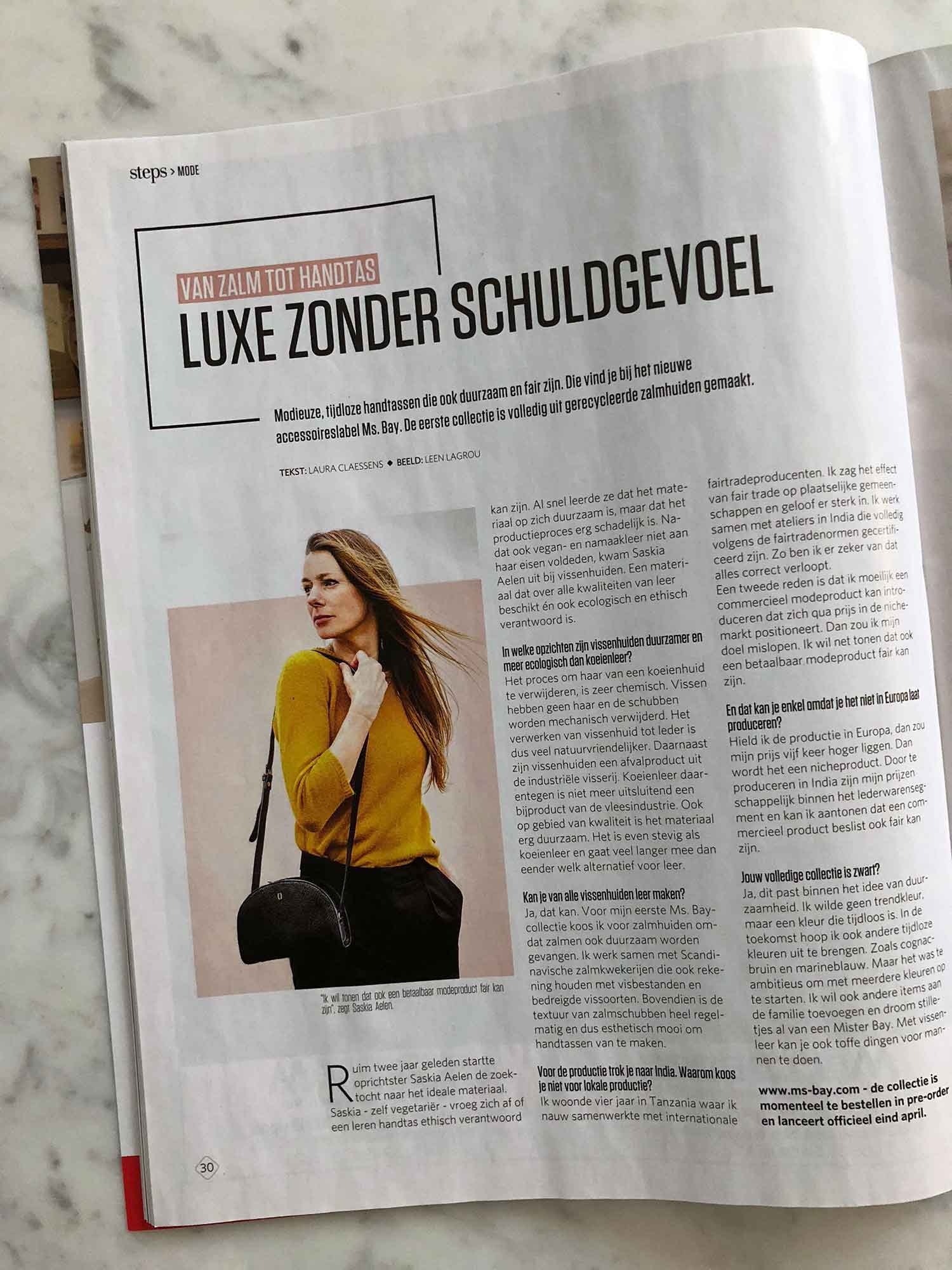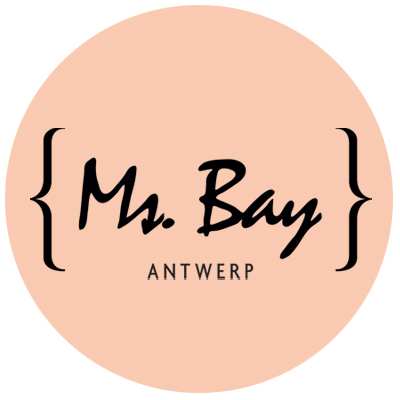
I was interviewed by Steps Magazine about .. what did you expect?! Salmon leather!
“About two years ago founder Saskia started her search for the ‘perfect’ material. Saskia, a vegetarian herself, wondered if a leather handbag could ever be ethically responsible.
Quite fast she found out that the material itself is very durable, but the process to make it is very harmful to the environment. After several vegan and fake leather alternatives didn’t meet her high-quality standards, Saskia ended her search with fish skins.
A material that has all the qualities of conventional leather but also is ecologically and ethically sound.
Why are fish skins better in terms of ecology and sustainability compared to cow leather?
The process of removing hair from a hide is very toxic. Fish obviously don’t have any hair to be removed and the scales are removed mechanically. The process of turning a skin into a leather is thus less chemical and harmful.
In addition, the skins are all a waste product from the fishing industry. Cow leather in contrast no longer is always a by-product of the meat industry. Also regarding quality, the material is very durable. It is as strong as cow leather and lasts much longer than any other leather-alternative.
Can you turn any fish skin into a leather?
Yes, you can. For my first Ms. Bay collection, I choose salmon because I could actually find a certified sustainable fishery for salmon. I work with Scandinavian salmon farms who consider environmental issues.
The texture of salmon is also very consistent and therefore aesthetically pleasing to make handbags out of.
For the production, you headed to India. Why didn’t you choose for a local production?
I lived 4 years in Tanzania where I worked with international NGO’s and fair trade producers. I saw the effects of fair trade on local communities and I’m a firm believer. I work with workshops in India who are certified fair trade. That way I am sure everything is done correctly.
Another aspect is of course that it is hard to set a commercial fashion brand into a saturated market if my price would force it into a niche. I would miss my target; I actually want to prove that an affordable fashion item can be produced fairly!
And that is only possible because you’re not producing in Europe?
With production in Europe, the price of Ms. Bay would be 5 times what it is now.
(added while I translate this: actually produced in Europe isn’t necessarily fair. There are less certified fair trade factories in Europe than you would think. And of others is known that they don’t take working conditions too seriously. Head over to Trusted Clothes to find out more!)
Your entire first collection is black?
Yes, this matches my idea of sustainability. I don’t want trendy colours, but an everlasting one. In the future, I hope to be
developing a collection in other timeless colours such as marine-blue and cognac-brown. But it was too ambitious to start off in several colours!
I also dream of adding other items to the family and of course a Mr. Bay. Plenty of ideas for great items for men already!


